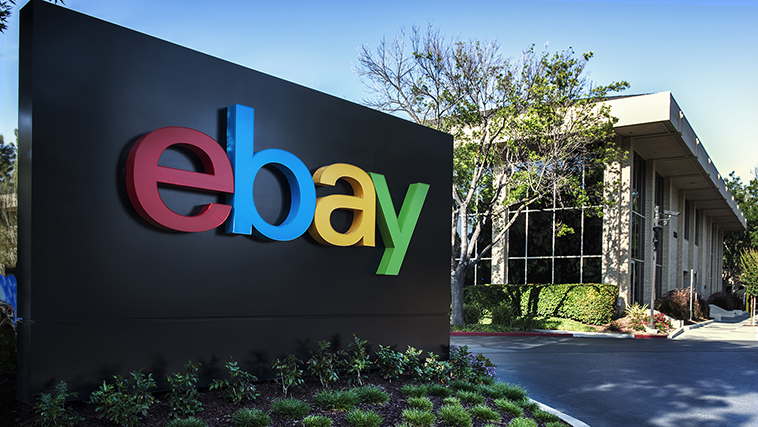Online marketplaces are all too regularly used for shady transactions, with stolen, counterfeit, and falsely marketed goods frequently ending up in the hands of unwary consumers. But a current incident involving the software provider SAP brings to light the worrying problem of stolen assets being sold on unofficial markets like eBay. In this paper, we examine the incident’s specifics, consider the steps third-party markets can take to prevent such incidents, and evaluate the possible effects of these steps.

Credits: eBay Inc
The SAP Data Breach:
Overview of the incident: One of the four stolen SSDs from SAP data centres was found being sold on eBay by a SAP employee. Numerous SAP workers’ personal data was present on the SSD.
Weak Physical Security: Unauthorised individuals were able to relocate the stolen SSDs to less secure places as a result of insufficient physical security checks at the data centres.
eBay’s Stolen Goods Challenge:
a. Persistent Problem: Due to stolen products being listed on its platform, eBay has come under frequent fire. The site has been a hub for many stolen items, including private information from electronic gadgets and computers in Tesla cars that cost millions of dollars.
a. eBay’s Policies and Response: In order to combat such activities, eBay forbids the sale of stolen goods and works with law enforcement. They encourage people to report any questionable activity, and they collaborate with the Proact team to track down dishonest merchants.
The INFORM Act and its Limitations:
Legislative Actions: The INFORM Consumers Act mandates that high-volume sellers’ credentials be verified by merchants like eBay in order to address the issue. It requires connecting personal data like Social Security numbers and government-issued IDs to seller accounts.
High-Volume Sellers: Although the INFORM Act targets high-volume sellers and criminal organisations, it might not completely stop the sale of particular stolen goods online.
Proactive Measures for Marketplaces:
a. Stricter Seller Verification: Marketplaces should implement enhanced seller verification processes, mandating detailed credentials from all sellers, not just high-volume ones.
b. Robust Monitoring Systems: Utilizing advanced technologies like AI and machine learning, marketplaces can actively monitor and flag suspicious listings that may involve stolen goods.
c. Collaboration with Law Enforcement: Close collaboration with law enforcement agencies is crucial in swiftly addressing and prosecuting sellers involved in selling stolen goods.
Company Responsibility and Impact:
a. eBay’s Role: Even though eBay states that it has a “zero-tolerance policy” for stolen goods, it needs to be more adamant and aggressive in its measures. Such dealers should be subject to unambiguous bans and clear sanctions.
b. Potential Impact: The incidence of stolen items on online marketplaces can be considerably decreased by putting better controls and monitoring systems in place. This will increase consumer confidence, safeguard personal data, and aid in reducing organised retail crime.
Safeguarding Customers and Businesses:
a. Protecting Customer Trust: Customers’ trust is diminished as a result of incidents involving stolen items, which also endanger the standing of third-party marketplaces. To guarantee a secure and dependable online purchasing experience, certain procedures must be put in place to prevent listings for stolen items.
b. Mitigating Financial Losses: When sensitive information is compromised due to stolen items, businesses like SAP could suffer financial damages. Theft of personal information may result in fraud, identity theft, and legal repercussions. These dangers are reduced by preventing stolen items from being advertised on independent marketplaces.
c. Legal and Regulatory Compliance: Both enterprises using third-party marketplaces’ platforms and third-party marketplaces themselves must adhere to legal and regulatory standards. These platforms show their dedication to compliance and data security by aggressively prohibiting the sale of stolen items.
d. Collaboration for a Safer Marketplace: To make the internet a safer environment, businesses, law enforcement, and third-party marketplaces must work together. It is possible to dissuade thieves and improve overall security by exchanging information, flagging suspicious activities, and taking prompt action against fraudulent merchants.
Conclusion:
The recent SAP problem and the finding of stolen products on eBay highlight the critical need for third-party markets to stop the selling of stolen goods. These platforms can drastically lower the frequency of such accidents by implementing preventative measures like improved seller verification and strong monitoring systems. The battle against stolen goods can also be strengthened by working with law enforcement organisations and by supporting legislation like the INFORM Consumers Act. In the end, online marketplaces and the businesses using their platforms should share responsibility for maintaining customer trust and protecting personal information.











